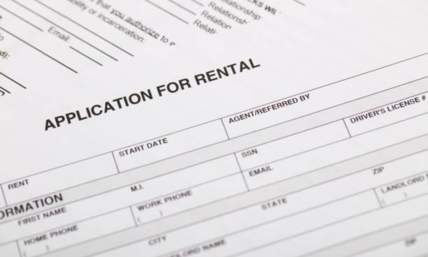How To Resolve Pay Stub Disputes With Your Employer
In today’s world, everyone is working hard for their money. Getting a paycheck on which something appears to be wrong can be discouraging. More than half of American employees have had issues with their paychecks at some point in their working years.
They range from wrong working hours to no overtime or unexpected deductions. All these issues can affect your finances and peace of mind.
Today, we will help you understand how to resolve such pay stub disputes. You’ll learn how to address incorrect pay stubs and exercise your employee payroll rights.
What Are Pay Stub Disputes?
Pay stub disputes are disagreements between employees and employers. These disagreements usually concern the content of the pay stub. A pay stub details the employee’s earnings for a particular pay period. That includes their gross pay, taxes, deductions, and net pay.
A dispute arises when you feel that there is some kind of error that needs to be rectified. Such discrepancies may include basic mistakes like typographical errors. On the other hand, there may be more severe errors. Examples are unpaid wages for overtime or deductions without authority. These types of mistakes occur fairly frequently and are present throughout employees’ careers.
These disputes should be addressed immediately. The issues they bring can escalate to even more challenging issues. Examples include tax issues, employee hardship, and loss of trust in employers.
Common Causes of Incorrect Pay Stubs
There are various factors that may lead to incorrect pay stubs. These, in turn, cause pay stub disputes. Here are some of the most typical things to look for:
Incorrect payment calculations
Payment errors are among the most common reasons for disputes. These may be as basic as general mathematical errors. It can also be as complicated as major mistakes in tax, benefits, or commission calculations. Sometimes, the error is not even a result of some violation of contractual terms by the employer. It can be merely a defect in the payroll system.
Unpaid overtime
Overtime is another common cause of disputes, mainly in companies operating under shift systems. If you work extra time more than your shift, it means you are eligible for overtime pay. Disputes arise around this when employers do not factor in these extra hours. The result of that is underpayment.
Employee misclassification
Several problems may arise from employee misclassification regarding payment matters. Wrong classifications certainly affect your compensation and benefits. It is wrong if you are classified as an independent contractor but you are an employee. You may also be an employee, and your exempt/non-exempt status is wrong.
Recorded Hours Discrepancies
Recorded hours are usually an issue when it comes to pay stubs. These are the reasons why time tracking is important. Employers and workers can dispute over the number of working hours they completed. This is more common in organizations where people work from home or have flexible schedules.
Step-by-Step Process for Resolving Pay Stub Disputes
In case of a dispute, you can take the following measures to ensure that the matter is solved:
-
Gather Documentation
As a starting point for proving your claim, get relevant documents to support it. This may consist of pay stubs from your working history or an employment contract. It may also be timesheets, emails on pay rates or schedules, or other documents. This plays an important role when you decide to bring it up with your employer.
-
Identify the Error
Secondly, find out what is specifically wrong with your pay stub. Maybe it’s a certain amount that is missing or erroneously deducted. This should be computed and documented as required proof. This helps the employer understand your concern and respond to or manage it well.
-
Contact Appropriate Quarters
Find out the appropriate person to contact. This is normally not the immediate supervisor but an employee in the payroll or HR division. Payroll employees expect most people to come to them for help. So, you shouldn’t hesitate to reach out.
-
Be Composed
Try to maintain a composed and rather professional tone when speaking. Always be assertive while addressing the issue. However, do not come across as accusing the other person. Payroll mistakes do occur from time to time. Thankfully, most employers do not like to wait long before fixing them.
-
Communicate the Issue
Provide proof and state the issue clearly and simply. Show them how you calculated it and arrived at the amount. Be ready to answer questions from the payroll representative and clarify some things.
If the error is confirmed, find out the likely duration it will take to rectify it. Some problems can be corrected in the next pay cycle. Others might take more time to resolve. Try to obtain this timeline in writing if it is available.
-
Follow Up
In some cases, the correction does not turn up as fast as promised. Then, you can follow up. Pick up the phone and ask whether the solution was given. You can also send an email to follow up on the matter. Nevertheless, it may sometimes take time, especially in big organizations. This is because the correction of pay stubs might involve other departments.
Legal Protections To Enforce Employee Payroll Rights
Your employer may not respond or take action to rectify the pay disputes. If this happens, here are some legal protections for employee payroll rights.
Seek help from the local office of the U.S. Department of Labor’s Wage and Hour Division. This body enforces federal employment laws and may look into issues such as unpaid wages or deductions. They can order employers to provide wages and/or fines. In a number of circumstances, they can mandate them to pay other compensations.
The State Department for Labor or State Workforce Commission offers similar protection at the state level. These agencies tend to have easier complaint procedures. They may even provide more far-reaching safeguards required at the state level.
The waiting time penalty is a powerful weapon in a legal fight against employers. It's especially important in states such as California. Here, an employer must not unreasonably deny paying wages when due. If they do, they must pay the daily rate for each day the employee remains unpaid. This can go on for a maximum of thirty days.
You can also file a wage claim with your state labor commissioner. It’s not complicated, and most people don’t need professional legal help. The outcome of this administrative process allows for settling many pay issues. You also avoid the process of taking the case to court.
Depending on the issue, you may exhaust administrative remedies without getting a solution. Then, you can take it to the next step. It is advisable to consult with an experienced employment attorney. Most employment lawyers provide consultations. Many also work on a contingent fee basis for some cases.
To Sum It Up
Pay stub disputes are quite widespread, and the problem may considerably influence your life. Whether you are in this position or not, you need to always go over your pay stubs. Doing so can uncover the errors and help you resolve them appropriately and quickly. Do not shy away from taking a step further if this is necessary. Federal and state laws have given workers some rights in terms of pay. It is important to be an informed and proactive employee. This ensures you avoid compromising your pay stubs and get the best out of your compensation package.
Ensure clarity and control over your payroll with our pay stub tool. Our platform empowers you to create precise and professional pay stubs. We help you stay proactive and maintain accurate records. So, you'll always be prepared to resolve pay stub disputes and uphold your employee payroll rights. Don’t leave your financial peace of mind to chance. Start creating your reliable pay stubs today and ensure your earnings are accurately documented every time.














